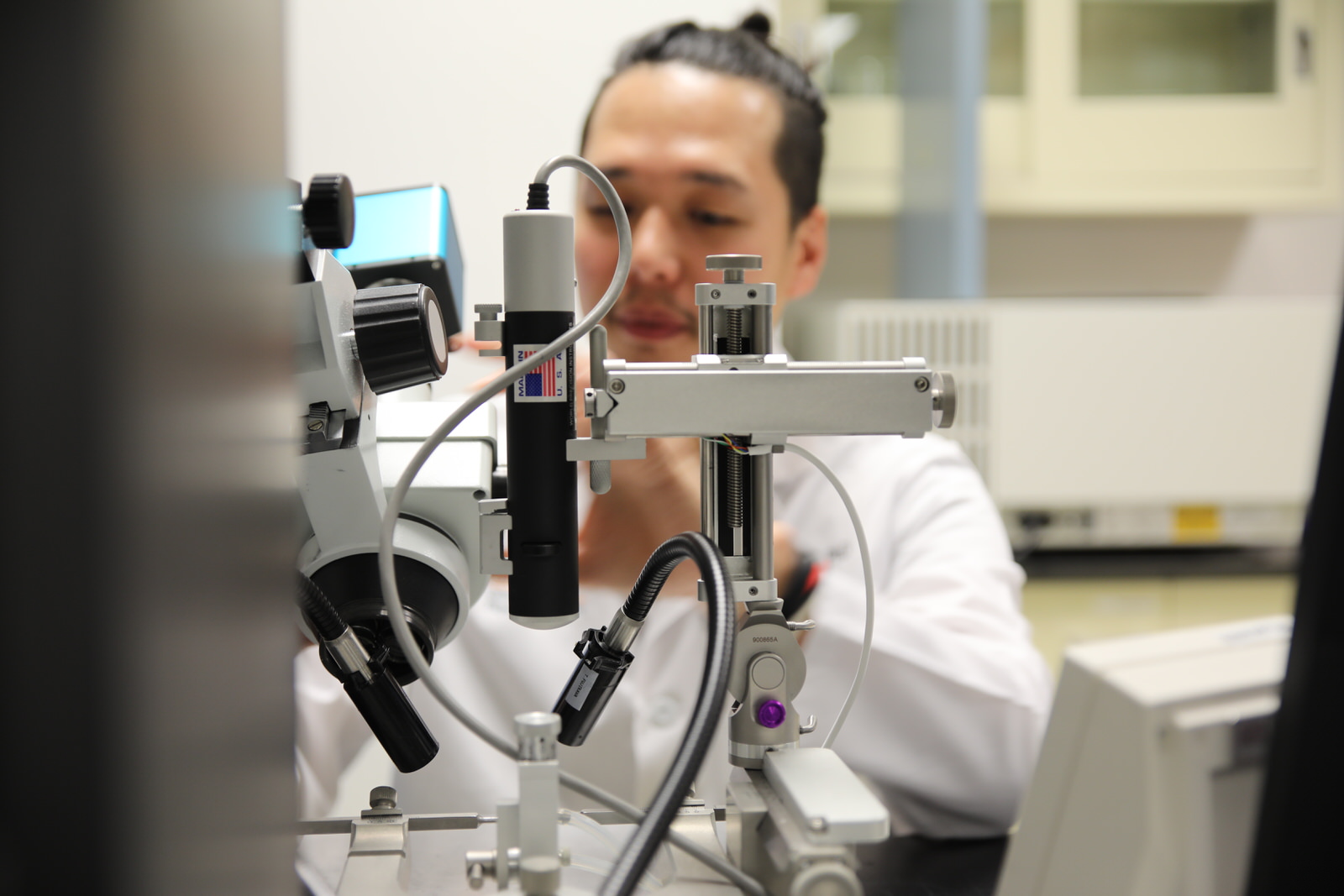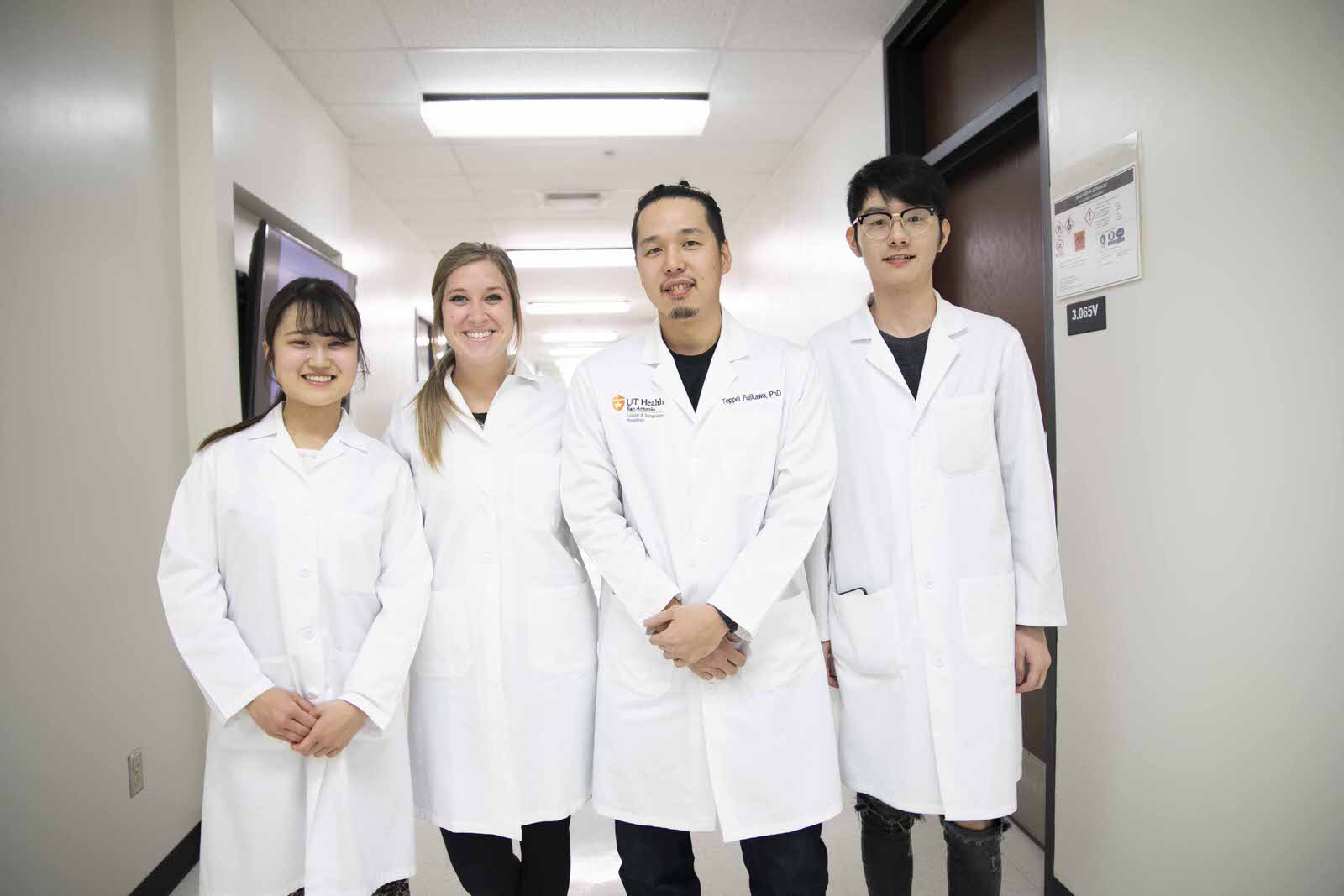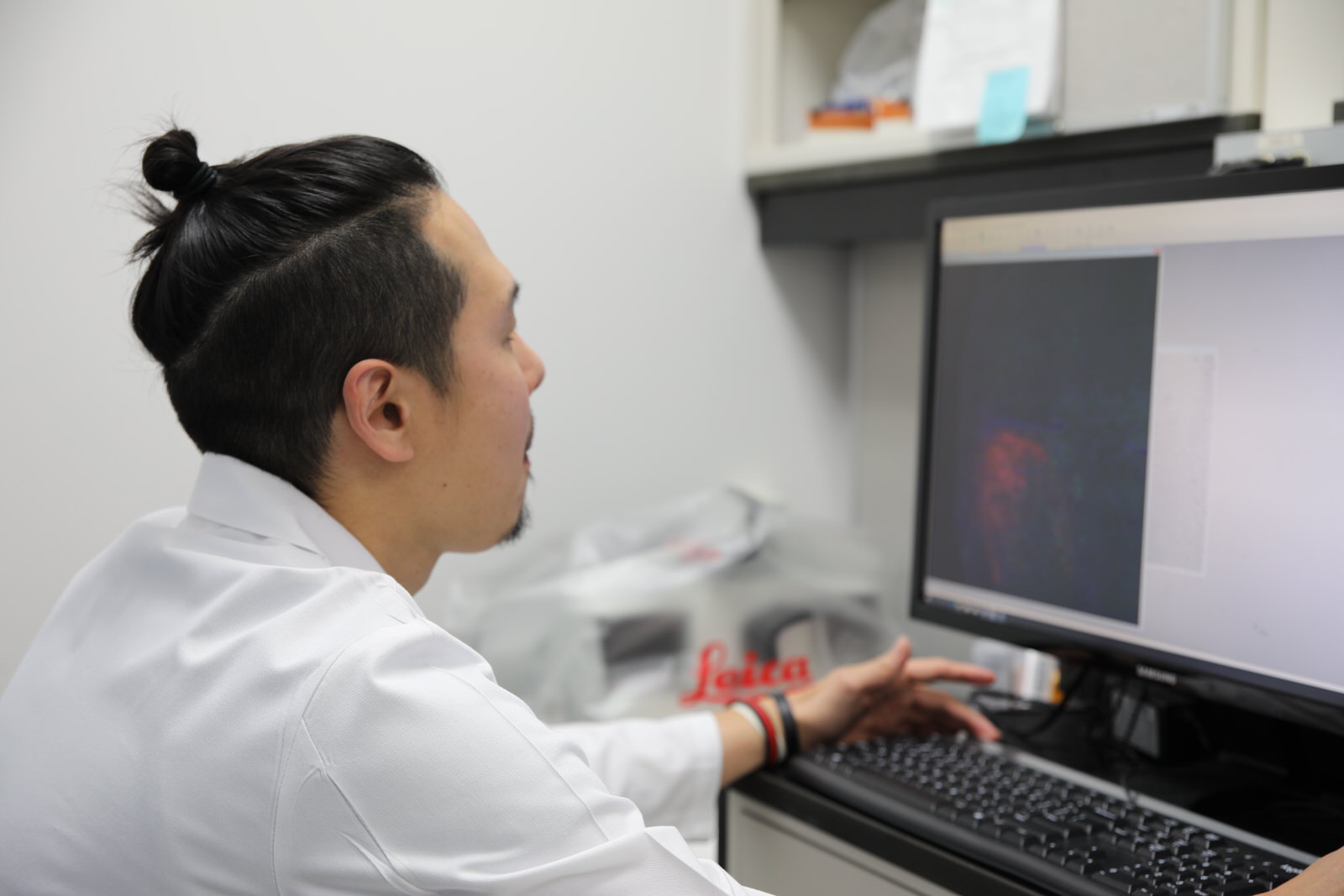Faculty Spotlight: 16 Questions with Teppei Fujikawa, Ph.D.

1) Please tell me about yourself.
I am an assistant professor in the Department of Cellular and Integrative Physiology here at UT Health San Antonio. I got my Ph.D. from Kyoto University in Japan, and did postdoctoral training at UT Southwestern Medical Center. I’ve been in Texas for more than 10 years, that is the most extended period I’ve lived in one state (including in Japan) so that I believe that I’m more or less Japanese-Texan now.
2) What brought you to UT Health San Antonio?

Our department and school have many outstanding neuroscientists who have different techniques and knowledge for me, and I thought this is the best place where I can develop my scientific program towards new directions.
3) Tell me about your research interests and why you are passionate about this topic?
Our team is investigating the mechanism underlying the central regulation of metabolism. In particular, I am interested in the mechanism under metabolically-challenging environments, such as exercise, obesity, and diabetes. I played basketball on the university’s team so that I would like to understand how our body and metabolism work in the context of sport and exercise. When I started my scientific career as undergrad in Kyoto University, I had to submit the undergrad thesis to graduate, I picked a project related to my curiosity– neuroscience and metabolism. Since then, I am still hunting the question that I had when I was a undergrad student.
4) What do you want the public to know about your research? Why is your topic important?
Obesity and its associated diseases including diabetes increase the risk of many other chronic diseases such as cardiovascular disease, neurodegenerative diseases, and even some forms of cancer. The trajectory of obesity related problems is not optimistic at all. We expect the number of obese and overweight individuals will reach to the insane level. In 2050, 90 percent of the U.S. population will be either obese or overweight. Obesity and its related diseases cost billions of dollars every year. To understand how our metabolism works is the critical step toward designing new drugs. (See faculty profile)

5) What is your favorite part of your job?
My favorite part of my job is to write papers and maybe grants. I am not a good writer at all (and English is not my mother language). However, scientific writing challenges me from so many different aspects (e.g., what experiments you can design, what conclusions you can draw., etc), and I love these intellectual challenges. On top of that, writing is the most important tool for scientists to communicate with other people, and science does not exist until you communicate to the world (a.k.a publish the paper).
6) What is the most challenging part of your job?
To get funding. Period.
7) What do you like most about mentoring students?
When they start thinking and performing experiments independent of me.
8) How do you like to spend your free time?
Building something in my garage.
9) What is the most helpful advice you’ve received?

My Ph.D. mentor told me two things which still I try to do;
- Nothing but your publications can protect you in this business (academia).
- If your grandma (I’m sure it means layman) cannot understand your research, you probably should avoid such research.
10) When did you start becoming interested in science?
I’m not sure, but I was pretty much interested in any scientific subjects from elementary school.
11) Growing up, what did you want to be?
I wanted to have a job that can support and interact with athletes by any means.
12) If you were stranded on a deserted island, what one band or musician would help keep your sanity?
Steve Aoki.
13) What is your favorite quote?
“Great things come from hard work and perseverance. No excuses.”
Kobe Bryant
14) If you won the lottery, what would you do?
Donate to my lab so that I don’t have to worry about funding. Hopefully it will happen one day.
15) If you could travel anywhere, where would you go?
Mars?
16) If you could only eat one thing for the rest of your life, what would it be?
Ramen (good one though…I still could not find good ramen restaurants here..)
